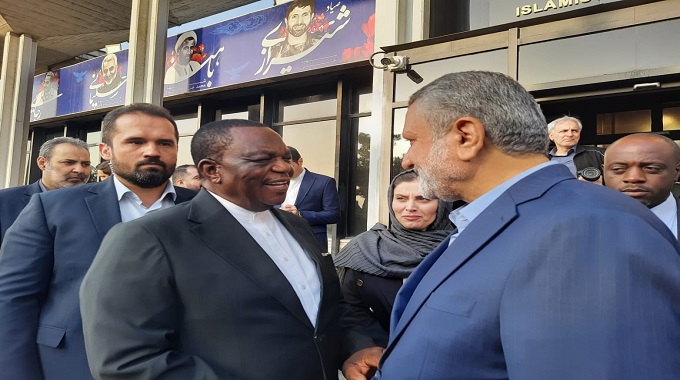Invest in agriculture, Africa urged
From Victoria Ruzvidzo in Durban South Africa
AFRICAN governments should invest in agriculture, giving particular attention to the small scale farmers on whom the sector and the continent’s economic transformation are premised. Speaking during a debate here yesterday on leadership in an era of disruption, Oxfam International Executive Director Winnie Byanyima said it was critical for governments and the private sector to invest in irrigation equipment, infrastructure such as dam and roads, and the availability of finance facilities to ensure that the sector reaches its potential.
Agriculture creates at least 60 percent of Africa’s revenue while it ensures food security.
“Investment in agriculture can reduce poverty five times more than any other economic sector. So put resources into this sector and stop people from dying,” she said.
Although the sector was threatened by climate change, it was critical that measures be put in place to confront such challenges as droughts. The continent needed to put in place measures to adapt to the changes taking place in the sector while also embracing new technology.
The session, the first plenary of WEF 2017, was moderated by Zimbabwean Vimbai Kajese, a TV personality and entrepreneur based in China. She raised Zimbabwe’s flag high. Nigeria’s Tony Ofumelu stressed the importance of viable agriculture as a strategy to eradicate poverty.
“How can you talk of development when you cant feed yourself?” We need to ensure food security through investment,” he said.
Mr Ofumelu lamented the fact that measures were adopted even at African Union level to bolster agriculture and other sectors of the economy but many of these were hardly implemented.
“In Africa the narrative should change. Africa should call on all its leaders to improve the business environment . . . to deal with poverty. The people who grow economies are SMEs,” he said.
Agriculture also has the highest potential to create job and to reduce the rural to urban migration that has crested more challenges for most of the continent’s cities. Therefore, investing in agriculture would help reduce poverty while reducing the effects of climate change. Most economies on the continent are anchored on Agriculture.
Zimbabwe is one country that has embarked on an aggressive programme to resource agriculture through the Command Agriculture project lately. The land redistribution programme was also an initiative to ensure Zimbabwe had access to land, one of the critical factors of production. The mechanisation programme launched a few years ago and other efforts to capacity farmers are expected to consolidate agriculture’s contribution to the Gross Domestic Product. This is expected to foster a rebound of Zimbabwe’s economy and the restoration of its breadbasket status.
Food security is also one of the main pillars of the Zimbabwe Agenda for Sustainable Socio-Economic Transformation.
More than 1 000 delegates are gathered here to deliberate how the continent can achieve inclusive growth through responsive and responsible leadership.
President Mugabe is leading Zimbabwe’s delegation that includes Finance Minister Patrick Chinamasa, Industry Minister Dr Mike Bimha, Macro-Economic Planning and Investment Promotion Minister Dr Obert Mpofu and the Minister of Foreign Affairs Dr Mumbengegwi.
Private sector representatives include WEF global shaper country representative and entrepreneur Mr Rinos Mautsa, Vimbai Kajese and renowned entrepreneur Farai Gundani, among others.







Comments